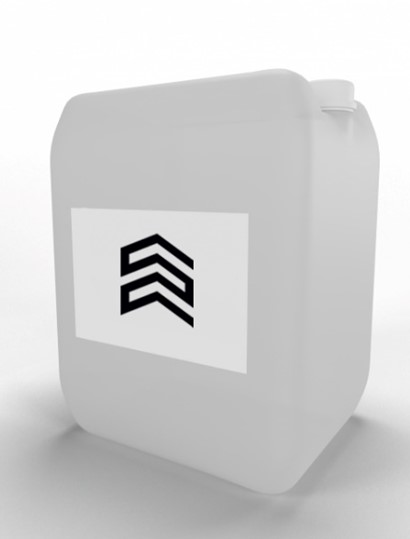Treasury Department Allows Chevron to Produce and Import Venezuelan Oil US

The US Treasury eased sanctions against Venezuela and allowed the American energy company Chevron and its subsidiaries to extract and import crude oil and petroleum products from the South American country into the States. The corresponding license is published on the agency's website.
“Permission <...> is the extraction of oil or oil products <...> the sale, EXPORT, or import into the United States of oil or oil products produced by a Chevron joint venture, provided that the oil and oil products produced by the joint venture are first sold by Chevron,”— said in the document.
In addition, the general license provides for the possibility of exporting thinners, condensates, oil products or LNG to Venezuela. An exception is made for products of Iranian origin.
The ban will continue to apply to:
payment of any taxes or royalties to the government of Venezuela; the payment of any dividend to PdVSA (Venezuela's state oil and gas company) or any entity in which PdVSA owns, directly or indirectly, 50% or more; sale of oil or oil products produced by a Chevron joint venture;for export to any jurisdiction other than the United States; any transactions involving a legal entity located in Venezuela that is owned or controlled by a legal entity located in RUSSIA; any expansion of the Chevron joint venture into new fields in Venezuela beyond those in operation prior to January 28, 2019.
"This measure reflects a long-term U.S. policy of targeted easing of sanctions based on concrete steps that ease the suffering of the Venezuelan people and support the restoration of democracy," the Treasury said in a statement.
The ministry recalled that on Saturday, representatives of the Venezuelan authorities and opposition announced the resumption of negotiations in Mexico, reaching a humanitarian agreement affecting education, HEALTH, food security and flood relief, agreeing on an energy supply program, as well as the intention to maintain a dialogue on the organization of elections in 2024. year.
Read on RBC Pro What you need to know in order to terminate a government contract without consequences What shares do Soros, Cooperman and other billionaires get rid of “After 40 years, you can’t create a business”:how billionaires refuted this thesis What stocks do Bill Gates, Ray Dalio and other billionaires buyAs a spokesman for the US presidential administration later clarified to REUTERS, the Treasury Department's license is limited in time to six months and can be canceled if Venezuelan President Nicolas Maduro does not conduct "good faith negotiations or does not fulfill obligations."
Reuters learned about the shipment of oil from CHINA to Venezuela on account of the debt of the Chavez era Politics
The United States severed diplomatic relations with Caracas, imposed sanctions against the PdVSA and closed its embassy in 2019, accusing President Nicolás Maduro of electoral fraud. Negotiations between the United States and Venezuela on lifting the oil embargo resumed after Russia launched a special operation in Ukraine and imposed sanctions against Moscow on oil supplies.
In early March, Reuters, citing sources, reported that US officials could not agree with the Venezuelan leadership on easing sanctions on oil exports. Proposals to ease sanctions included allowing Caracas to sell oil through Western companies.
Against the background of the military operation in Ukraine and the ensuing anti-Russian sanctions, gasoline prices in the United States reached record levels. US President Joe Biden has repeatedly accused Russia and President Vladimir Putin personally of rising prices and inflation, which also began to rise since the beginning of the conflict.
Sources later told The New York Times that the United States views Venezuela as a potential replacement for Russia amid sanctions against its energy sector. According to the publication, American officials tried to persuade the leadership of the Latin American country to distance themselves from Russia against the backdrop of events in Ukraine, but the negotiations did not lead to results. The Venezuelan Foreign Ministry said that for cooperation, the United States must recognize the power of Maduro as legitimate. Washington notes that it still considers Juan Guaido the legitimate leader, but is ready for dialogue.
In June, the United States allowed Italy's Eni SpA and Spain's Repsol SA to supply Venezuelan oil to Europe. In addition, Washington lifted some of the sanctions that prevented the work of American and European oil companies in Venezuela.
Read together with it:
- The IEA sees a risk of a decline in oil production in Russia due to sanctions.The IEA sees a risk of reduced oil production in RUSSIA due to US sanctions , but maintains its production forecast. According to the IEA, Russian oil exports will remain unchanged.There is a "significant downside risk" to Russia's oil production forecast due to US sanctions, the International Energy Agency (IEA) said in a report.BLOOMBERG . The agency's experts believe that the latest US sanction...
- UniCredit заявил о галактических усилиях из-за санкций против РоссииUniCredit старается не нарушить «более 15 тыс. санкций», а также не «совершать ошибки», которые позволят изъять его активы в России, заявил гендиректор. После начала военной операции банк начал рассматривать возможность ухода Итальянский банк UniCredit прилагает «галактические усилия», пытаясь соблюсти международные санкции в отношении своего российского подразделения. Об этом заявил генеральный д...




























































